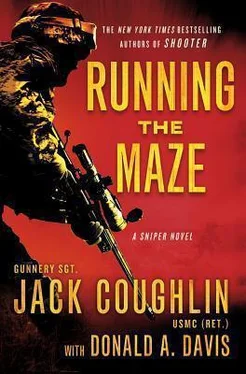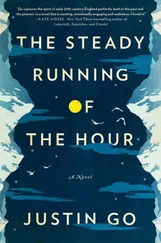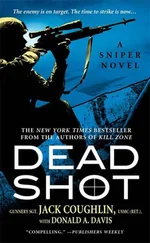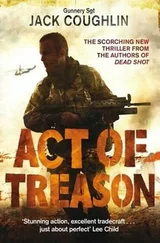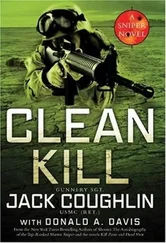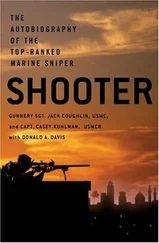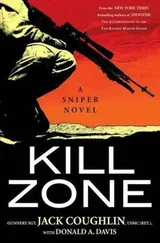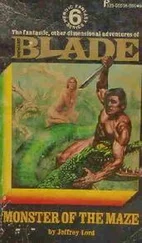“How much more time will the official tour take?” asked the al Qaeda man.
“Another hour or so. Then I’ll just leave the carts with you, along with a guide, and you go anywhere you want, ask questions of anyone. There is no time limit and no restrictions as far as I am concerned.” Hafiz swung the cart into a tight little circle and stopped. The three other carts, two men in each, followed his example.
Hafiz stepped into a white square painted on the floor outside the control room and pushed a button to activate the entrance sequence. A shimmering bright white halo appeared overhead and slowly descended all the way to the floor, taking biometric and facial recognition data, running it through the computer, confirming the findings, and changing to green before snapping off. The door unlocked automatically, and Hafiz pulled it open.
Al-Masri was astonished when he stepped inside, and absently reached out and touched one of the many racks of equipment. His team members came in behind him and gaped like children. The room had the look of an empty financial brokerage, with large screens on the walls, desktop computers, indirect overhead lighting, and several chairs in low cubicles filled with electronic displays. One bigger chair was perched on risers near the back, with a pair of screens right in front of it, a joystick on each arm, and a keyboard beside a panel of switches and knobs. The air-conditioning hummed in its ongoing fight to control the heat churned out by the electronics within the enclosed space.
“What does it do?” he finally asked.
“Everything,” replied Hafiz. “I don’t understand even half of it, but from that big chair, the chief engineer had everything at his fingertips. Watching him work it was like seeing a conjurer doing the impossible. Despite the wonder, these are not toys for children but a real war-fighting center. Cameras and sensors everywhere, map overlays, holographic projections, and automatic weapons adjustments. Just imagine; one man holding off anything the enemy could throw at him, and doing it in air-conditioned comfort. A bomb hit up top might not even be felt down here. Giant springs beneath the floor would soak up the impact.”
“Then why is it not filled with technicians right now?”
“Well, the truth is that the chief engineer did not think about other people running his system. He must be replaced before it can be truly functioning. Islamabad is putting together a qualified team; no one man could do what he did. They will be transferred in to take final control within a week.”
Al-Masri walked around, looking, and was drawn toward the one flat screen that showed some activity and was giving off a steady beep. The flare of a campfire showed clearly, and several shadowy figures moved around it. “What is this?”
Hafiz glanced over. “Some of my security people. Just a routine patrol down in the valley by the old bridge,” he said. “Taliban. They may be good fighters, but not very disciplined. We are bringing in regular troops to take over as soon as possible, a whole platoon.”
“A lazy patrol does not inspire confidence,” said al-Masri.
“Nothing ever goes totally smooth in bringing a huge project such as this online, transitioning from construction to operational,” said Hafiz, trying to sound casual. “A lot of pieces are yet to finally be in place, including a final security protocol. When everything is up and running, it will be a wonder. The Commander will be quite safe here.”
“That is for me to determine,” said Ayman al-Masri.
Hafiz laughed. “Wait until you see the guns. Now, let’s take a break and have some tea.” He led them away and relocked the door. Inwardly, Hafiz was embarrassed that the latest patrol had been seen taking their ease down by the old bridge. The poor quality of the Taliban was reflecting on him personally, and he would not tolerate that. When they reached the dining hall, he took a minute to radio orders to move out the reserve unit immediately. The sergeant planned to kick some sense into that first group when it returned.
THE VALLEY
“NOW WHAT?” BETH LEDFORD whispered, staring out beyond the campsite.
“We keep going,” Swanson replied, unfolding a map he had found on the man who had been standing up. Taking a compass reading and shielding his flashlight with his hand, Kyle studied it for a moment and determined the landmarks of the old and new bridges. Bingo. Good intel. It was a detailed rendering of the sector.
“Things are changing fast, Coastie, but that always happens after the first shot is fired, and our plans have to change to meet the new circumstances. This is just the start of the game, and we have to do a lot more. Get one of the blankets.” Among the contour lines on the map was a scattering of bold blue dots, including one about ten meters from the campsite. He pointed and said, “Walk slowly directly west and see if one of those camera pipes comes up. About a dozen steps.”
She shook out a sweat-stained blanket and held it before her like a shield. After only three steps, she said, “There it is. Already coming up and pointing at the camp.” She tossed the heavy cloth, and it settled like a tent around a center pole, blinding the camera.
“OK. I think every camera in this sector is marked with the same symbol, which is good for us. I’ll take point. Follow me up this trail.”
Ledford brought her rifle to a ready position and stepped out behind him, changing magazines as she walked. She had reloaded without being told.
So far, Kyle had been satisfied with her work. Started out a little nervous but adjusted well. She had not freaked out in their ambush and was able to pull the trigger, but he anticipated that stronger opposition lay ahead, and the hardest part of the three tiers of reaction was to keep calm when someone is shooting back. She would face that test soon enough.
“We have to believe we have been compromised, but it’s too early to leave, because things don’t make sense yet. Whatever the secret may be lies up at that big bridge, so we have to move closer. Keep your head on a swivel. And don’t worry if you feel scared. You’re supposed to be scared. It helps you pay attention.”
“In that case, Gunny, I’m paying a lot of attention.”
Darkness closed around them again as they left the campsite on the well-traveled trail that ran along the west bank of the river. A treeline started at the top of the ridge. Below, Beth could hear the forceful rumble of water working around smooth boulders, uprooted trees, and the debris caught around the submerged eastern end of the old span. She wasn’t really scared, and reminded herself that the Coast Guard preached that you have to go out, but nobody ever said a damn thing about having to come back. Same thing, different place.
The radio Swanson had taken from the patrol leader squawked. Somebody angry, speaking fast Arabic. He caught the drift, that the dead man was being chewed out for not making a scheduled radio check. Swanson turned down the volume but listened carefully. A relief patrol was being sent out. He did not try to reply. The call puzzled him, for it sounded like the headquarters dude was unaware that they were around. Perhaps they had not been badly compromised after all.
THE BRIDGE
SPIKES OF NOISE ECHOED through the corridors, and Sergeant Hafiz had to find a quiet place before trying raise the second patrol by radio. He pushed open a steel door painted light green and stepped inside a low bunker where an Iranian SPG-9 antitank gun squatted on its automatic mount. The room smelled of oil. Hafiz pushed a control switch on the wall, and the cover of the firing slit hummed open, allowing direct line-of-sight radio transmission into the valley. Beyond the hearing of the al Qaeda inspectors, he now unloaded his pent-up frustration into his radio. The patrol had not checked in, and he had even seen them on the control room monitor, loafing and asleep at the old bridge. There was still no response. Hafiz closed the firing lid and stormed out of the gun pit, his face dark with anger.
Читать дальше
